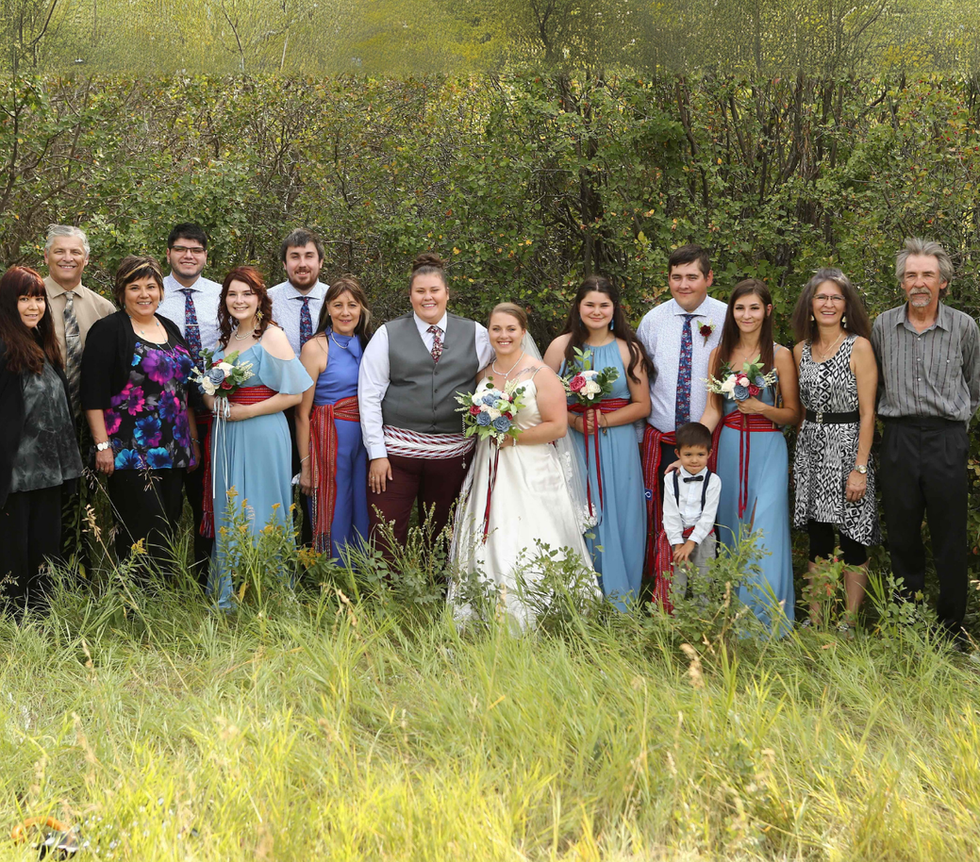









Introducing Karen LaRocque
A Lifelong Advocate and Proud Métis Woman
Karen LaRocque is a proud Métis woman, mother, and grassroots leader with deep roots in community organizing and advocacy. With decades of experience in governance, non-profits, and community care, Karen is ready to bring compassionate, transparent, and culturally grounded leadership to the office of Vice President of Métis Nation–Saskatchewan.
Karen has worked directly with Métis women, Elders, youth, and 2SLGBTQIA+ communities. She has a reputation for listening, lifting others up, and taking action that reflects the will of the people — not politics.
As Vice President, Karen will honour the voices of our Citizens and ensure that our Nation reflects the strength and diversity of our communities.
Biography
Karen LaRocque
Candidate for Vice President,
Métis Nation–Saskatchewan
Karen LaRocque is a proud Métis woman whose roots run deep in the Qu’Appelle Valley. Born and raised in the historic Métis community of Lebret, Saskatchewan as well as the urban centre of Regina, Karen grew up immersed in her culture and community. Raised by two strong Métis parents, Clifford and Rita LaRocque (née Pelletier), Karen was taught the values of pride, perseverance, and service to others—principles that have guided her life and leadership.
From a young age, Karen was surrounded by Métis political discourse, often listening in on community leaders gathered around her family's kitchen table. Inspired by her late father, Clifford, a passionate Métis advocate, Karen stepped into the world of Métis governance and has since dedicated her life to uplifting her Nation.
Karen has held many roles throughout her career: educator, CEO of Regina Métis Sports & Culture, Vice President of FIRM 33, CEO of Les Filles de Madelaine (the provincial Métis women’s organization), and a Knowledge Keeper for Morning Star Lodge. Her advocacy extends to health and environmental stewardship, having served on the Regina Qu’Appelle Health Region Board of Directors and as a member of the Nature Conservancy of Canada’s Indigenous Advisory Group. She has also contributed her voice as a Duty to Consult Consultant, Economic Development Consultant, and former Regional Director for Western Region III within the Métis Nation–Saskatchewan.
A lifelong cultural ambassador, Karen has been an active member of the traditional Métis square dancing group, the Riel Reelers, and continues to mentor and support the next generation of Métis leaders. She currently resides in Lumsden, Saskatchewan, where she has raised three proud Métis children—Joshua, Jocelyn, and Randi—and remains a beloved matriarch to many nieces, nephews, and adopted family members who call her Aunty Karen or Ma.
Karen’s journey is one of grounded leadership, cultural pride, and an unwavering commitment to her people. As she campaigns for Vice President of Métis Nation–Saskatchewan, Karen brings forward a platform rooted in grassroots empowerment, women's and 2SLGBTQIA+ inclusion, transparent governance, and respect for our collective Métis identity.
Research & Publications
Karen LaRocque has contributed to and supported research that centers Indigenous leadership, self-determination, and community well-being. Her work reflects a commitment to ethical engagement, cultural safety, and evidence-based approaches to health, wellness, and empowerment.
Engaging in Self-Determined Ethical Research With Indigenous Communities: Impact of Food Security Projects With Three Unique Communities
Published in Canadian Food Studies / La Revue canadienne des études sur l’alimentation
This research explores the outcomes of food security initiatives in three Indigenous communities, emphasizing the importance of self-determined, culturally grounded research processes. The study highlights how ethical engagement, community leadership, and relationship-building foster successful health and food security outcomes.
Establishing Trustworthiness Through Engagement in Community-Based Participatory Research (CBPR) With Indigenous Communities
Published in Qualitative Health Research (2014)
This article examines how trust and relationship-building are essential components of effective participatory research with Indigenous communities. It shares best practices for creating research environments that respect Indigenous sovereignty, knowledge systems, and lived experiences.
Engaging in Self-Determined Ethical Research With Indigenous Communities
Published in SAGE Research Methods Cases
This research methods case study provides insight into the ethical considerations and methodological approaches necessary when conducting research with Indigenous communities. It emphasizes respect, reciprocity, and community control over research processes.
Capacity Building With Regina Métis Sports and Culture Centre
Published on ResearchGate
Focusing on community wellness, this research highlights capacity-building efforts through the Regina Métis Sports and Culture Centre. The study showcases how culturally relevant programming can support health, leadership, and cultural connection within urban Métis populations.














